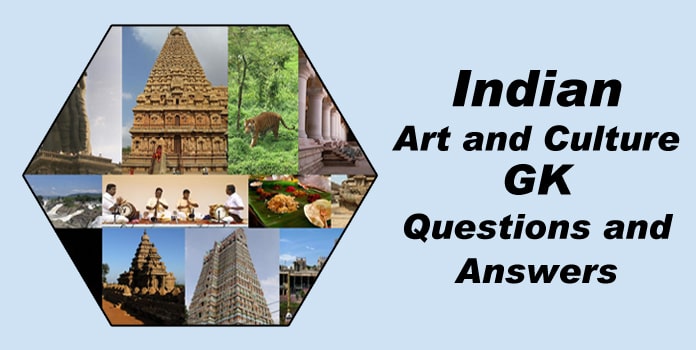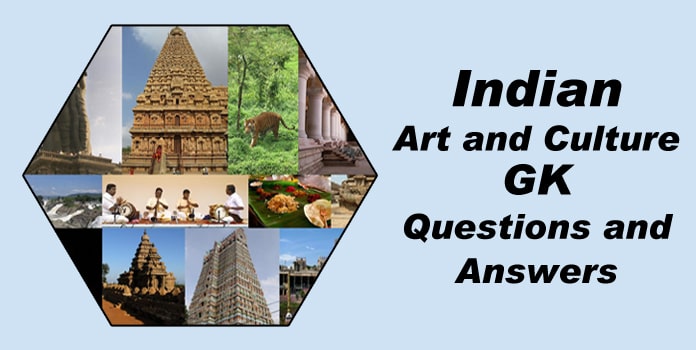

Art and Culture | Art and Culture of India |Top 25 Previous Year Questions with answer |
Art and Culture - Art and Culture of India basis on NCERT. Here, you will get top 25 Previous Year Question with answer. Its very important topic for competitive exam preparation. We are presenting 25 multiple choice question or quiz on NCERT and previous year question. Classical Dance, Classical Art, Art and culture UPSC, Previous Year Questions, Indian art and culture PYQ?s. So you can boost your exam preparation. It?s important for various competitive exam like UPSC, SSC CGL, SSC CHSL, SSC GD, IBPS PO, SBI PO, Bank, Railway, Steno, RBI Grade B, RRB JE,Group D, Teaching, CTET, and many other exams.
Important Top 25 Previous Year Question with answer related to Arts and culture for your practice:
Question 1: Which style of Indian classical dance originated in the temples of Tamil Nadu and is known for its intricate footwork and expressive hand gestures?
A) Bharatanatyam
B) Kathakali
C) Odissi
D) Kathak
Answer: A) Bharatanatyam
Question 2: The ancient city of Varanasi is situated on the banks of which river, considered sacred in Hinduism?
A) Ganges (Ganga)
B) Yamuna
C) Brahmaputra
D) Saraswati
Answer: A) Ganges (Ganga)
Question 3: The "Taj Mahal," a UNESCO World Heritage Site, was built by the Mughal Emperor Shah Jahan in memory of his wife. In which Indian city is it located?
A) New Delhi
B) Jaipur
C) Agra
D) Mumbai
Answer: C) Agra
Question 4: Who is often referred to as the "Father of the Indian Constitution"?
A) Mahatma Gandhi
B) Jawaharlal Nehru
C) Bhimrao Ambedkar
D) Sardar Vallabhbhai Patel
Answer: C) Bhimrao Ambedkar
Question 5: Which Indian festival is known as the "Festival of Lights" and is celebrated with the lighting of lamps, fireworks, and traditional sweets?
A) Holi
B) Diwali
C) Durga Puja
D) Eid
Answer: B) Diwali
Question 6: The Ajanta and Ellora Caves, famous for their intricate rock-cut architecture and ancient Buddhist art, are located in which Indian state?
A) Rajasthan
B) Maharashtra
C) Madhya Pradesh
D) Karnataka
Answer: B) Maharashtra
Question 7: Which Indian musical instrument is a stringed instrument played with a bow and is often associated with classical music?
A) Sitar
B) Tabla
C) Flute
D) Veena
Answer: A) Sitar
Question 8: The "Ramayana" and "Mahabharata," two of the most famous Indian epics, are written in which ancient language?
A) Sanskrit
B) Hindi
C) Tamil
D) Urdu
Answer: A) Sanskrit
Question 9: The Qutub Minar, a UNESCO World Heritage Site, is located in which Indian city?
A) Kolkata
B) Mumbai
C) Jaipur
D) Delhi
Answer: D) Delhi
Question 10: Which ancient university, situated in the present-day state of Bihar, was known for its excellence in education and attracted scholars from around the world?
A) Nalanda University
B) Banaras Hindu University
C) Aligarh Muslim University
D) Delhi University
Answer: A) Nalanda University
Question 11: The famous painting style that originated in the Mysore region of Karnataka, known for its intricate details and vibrant colors, is called:
A) Madhubani
B) Warli
C) Tanjore
D) Mughal
Answer: C) Tanjore
Question 12: Which Indian classical dance form originated in the state of Kerala and is characterized by elaborate costumes, detailed makeup, and expressive gestures?
A) Odissi
B) Manipuri
C) Kathakali
D) Sattriya
Answer: C) Kathakali
Question 13: The "Rigveda," one of the oldest sacred texts of Hinduism, is written in which ancient script?
A) Devanagari
B) Brahmi
C) Kharosthi
D) Pali
Answer: B) Brahmi
Question 14: The intricate art of painting on fabric using a specialized technique of resist dyeing is known as:
A) Batik
B) Origami
C) Papier-m?ch?
D) Block printing
Answer: A) Batik
Question 15: The renowned mausoleum "Humayun's Tomb," a UNESCO World Heritage Site, served as an architectural inspiration for which other iconic monument?
A) Qutub Minar
B) Taj Mahal
C) Red Fort
D) Fatehpur Sikri
Answer: B) Taj Mahal
Question 16: Which classical dance form from the state of Manipur involves graceful hand movements and delicate footwork, often depicting stories from Hindu mythology?
A) Kathak
B) Mohiniyattam
C) Kuchipudi
D) Manipuri
Answer: D) Manipuri
Question 17: The famous ancient rock-cut caves at Ellora include representations of which three major religions?
A) Hinduism, Buddhism, Jainism
B) Hinduism, Islam, Christianity
C) Buddhism, Christianity, Zoroastrianism
D) Buddhism, Jainism, Islam
Answer: A) Hinduism, Buddhism, Jainism
Question 18: Rabindranath Tagore, the first non-European to win the Nobel Prize in Literature, wrote the national anthems of two countries. One is India; what is the other?
A) Bangladesh
B) Sri Lanka
C) Nepal
D) Myanmar
Answer: A) Bangladesh
Question 19: The traditional art of creating intricate patterns on the floor, typically using rice flour or colored powders, is known as:
A) Henna
B) Rangoli
C) Mehndi
D) Batik
Answer: B) Rangoli
Question 20: The famous dance-drama form "Yakshagana," characterized by elaborate costumes and vibrant makeup, originates from which Indian state?
A) Kerala
B) Karnataka
C) West Bengal
D) Rajasthan
Answer: B) Karnataka
Question 21: The traditional folk dance of Punjab, characterized by energetic and lively movements, is called:
A) Garba
B) Bihu
C) Bhangra
D) Ghoomar
Answer: C) Bhangra
Question 22: The ancient script known as "Brahmi" is considered to be the precursor of which modern script?
A) Devanagari
B) Tamil
C) Bengali
D) Urdu
Answer: A) Devanagari
Question 23: The famous Indian festival "Navaratri" is celebrated for nine nights in worship of which deity?
A) Lord Vishnu
B) Goddess Durga
C) Lord Shiva
D) Lord Ganesha
Answer: B) Goddess Durga
Question 24: Which Indian city is known as the "City of Joy" and has a rich cultural heritage, as depicted in the novel of the same name by Dominique Lapierre?
A) Kolkata
B) Mumbai
C) Delhi
D) Chennai
Answer: A) Kolkata
Question 25: The traditional art form "Warli," known for its simple geometric patterns and scenes of daily life, originated in which Indian state?
A) Rajasthan
B) Maharashtra
C) Kerala
D) Uttar Pradesh
Answer: B) Maharashtra
In the world of government exams, understanding art and culture isn't just an exercise in aesthetics; it's a testament to a nation's identity, a reflection of its history, and a beacon of its future aspirations. As aspirants prepare for government exams, delving into the depths of art and culture equips them with insights that extend beyond mere academic achievement. It empowers them to comprehend the intricate threads that weave our social fabric and offers a profound appreciation for the cultural heritage that shapes our societies and governance systems.
The inclusion of art and culture in your preparation can provide a well-rounded perspective on governance, diplomacy, and societal dynamics.
